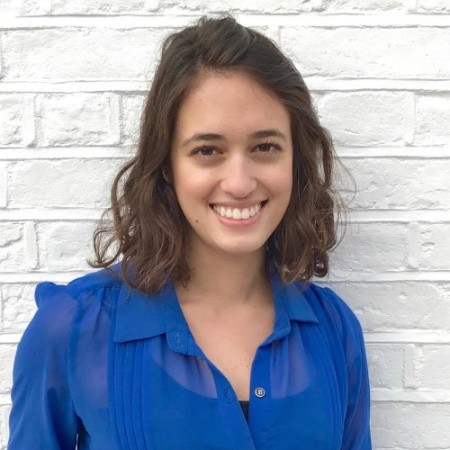

Personal development courses for teachers
Seneca offers a huge number of free online CPD opportunities for teachers. Seneca online CPD helps teachers improve their practice from the comfort of their own home.
Free personal development
Each course is written by experts in their fields and includes the latest in education theory and thinking. Some of the free CPD courses we offer are:
- Cognitive Science for Teachers
- Dual Coding for Teachers
- Retrieval Practice for Teachers
- Metacognition for Teachers
- Assessment for Teachers
- Literacy in Science Education
- Language Development for Teachers
- Leadership for Teachers and School Leaders
- Subject Specific Pedagogy for Teachers And many more...
Get Seneca certified
All of our courses are Seneca Certified. You'll receive a certificate when you complete the course. You can use the certificate to show evidence towards your continued professional development or to show off your achievements on your mantlepiece! 
Written by experts
Seneca CPD courses are written by subject experts. We've worked with the likes of:
- Oliver Caviglioli
- Jonathan Firth
- Jo Morgan
- Dr Flavia Belham
- Amanda Fleck
- Kate Jones
- Michael Chiles
- Dawn Cox
- Tom Hollins
- Sam Strickland And many more! These experts have broken down their knowledge into easy to digest chunk while will give you practical advice to take into the classroom.
Seneca virtual TeachMeets
The Seneca team are excited to present our series of Virtual Teechmeets. The Virtual Teachmeets will allow you to join a community of teachers who are continuing to engage in their professional development from home. Each TeachMeet will be led by an expert from different fields across education. There will be an opportunity for a live Q&A to let you ask those burning questions.
Seneca CPD YouTube channel
Hear from the leading names in education on our Seneca CPD YouTube channel. On our CPD YouTube channel, you'll find lectures available for you to watch for free at a time that suits you.
Seneca CPD podcast channel
Seneca have a podcast channel dedicated to helping you develop your teaching practice. The podcasts cover a broad range of different topics from education experts across the globe. Seneca's CPD podcasts are available from all podcasts providers.
Join the CPD community on facebook
Seneca have set up a Facebook group where you can engage with a community of teachers looking to further their knowledge, understanding and practice. Expect people to share all the best free CPD opportunities and discuss burning questions.
What's in Seneca's CPD courses?
Seneca offers free CPD courses on a range of different topics. Here is a selection of what you can expect from our free CPD courses.
1. Cognitive Science for Teachers Level 1
Seneca's first CPD course has received excellent feedback and has been completed by thousands of teachers.
Cognitive Science for Teachers Level 1 starts by exploring the different types of memory and developing an understanding of what working memory is. The course will help to explain the principles of dual coding, interleaving, spaced practice, retrieval practice, elaboration and concrete examples and why these help students learn. The course links theory to practice by exploring the research to find the most effective strategies based on cognitive science.
You will complete the course with a strong understanding of how Cognitive Load Theory can help you become a better teacher with strategies from:
- Dylan Wiliam.
- Rosenshine.
- Dunlosky.
- Daniel Willingham.
- The Learning Scientists.

This course is perfect for teachers at any level of experience. If you don't know much about cognitive science, this course is for you. You will come away knowing the basics about how to embed cognitive science in your practice.
Thank you to Dr Flavia Belham for writing this course.
2. Cognitive Science for Teachers Level 2
Cognitive Science for Teachers Level 2 is Seneca's second cognitive science course. You will learn about the thinking and research of the latest thought leaders, including Daisy Christodoulou, Alex Quigley, David Didau and Mary Myatt. You will come away from the course with practical advice about how to have a more evidence-informed approach to teaching, including how you approach interleaving and curriculum design.
This course is designed as a follow on from Cognitive Science for Teachers Level 1. Cognitive Science for Teachers Level 2 is an essential course for teachers with 3+ years experience and any teacher with Teaching and Learning responsibilities.

Thank you to Dr Flavia Belham for writing this course.
3. Metacognition for Teachers
Metacognition is a hot topic but it is often difficult to know how to implement it into your classroom/school. This course explores what metamemory is and the different areas of metacognition, including metacognitive knowledge, metacognitive monitoring and metacognitive control. You will also learn about the practical implications of metacognition for learners and teachers and the impact metacognition can make.
This course is designed for any teacher who is comfortable in their practice and is looking to add a further string to their bow. The course will develop a deep understanding of how your students think and learn.

Thank you to Jonathan Firth for writing this course.
4. Assessment for Teachers
Assessment is the bread and butter of teachers’ work. If you’ve completed our cognitive science CPD courses, you will have a deep understanding of the importance of retrieval practice. This course looks at how retrieval practice and assessment are links and how you can can improve student retention and make accurate judgements of students’ knowledge and skill using assessment.
You will start by learning the principles of validity and reliability in assessment and how both formative and summative assessment should be used in the classroom. You will also explore the most impactful ways to give effective feedback based on the latest research. The course will go on to make the link between theory and practice by explaining different methods of assessing students in the classroom.
This course is designed for teachers in the first few years of their careers who are looking to develop their practice in assessment.

Thank you to Dawn Cox for writing this course.
5. Literacy in Science
There is a huge range of subject-specific vocabulary students need to know in the sciences. It is the unenviable job science teachers to help students through this potential minefield. This course will help science teachers learn about the most effective methods for teaching students that tissue is not just something you blow your nose on!
This course will go into detail about why literacy is so important in science education, how to break vocabulary up into tiers and how to teach the literacy of science in the most effective way. You will complete the course with a range of practical guidance covering the best ways to teach your students how to read, write and understand the language they need to be successful in science.
This course is ideal for science teachers at any level of experience who want to learn more about teaching literacy in science.

Thank you to Amanda Fleck for writing this course.
6. Language Development for Teachers
Language Development for Teachers takes you through how language develops in children from a child's first words to becoming fluent in language. The course will help you to understand lexical development and will unpick the major theories of how language develops.
The theories explained in this course are:
- Behaviourism
- Interactionism
- Nativism
- Cognitivism
- Social constructionism
This course is perfect for teachers with a specific interest in linguistics and teachers looking to support students with low oracy skills.

Thank you to Dr Flavia Belham for writing this course.
7. Dual Coding for Teachers
Dr Flavia Belham & Oliver Caviglioli have come together to produce a free CPD course on how to use Dual Coding in the classroom with your students.
The course covers:
- Working Memory
- Redundancy Effect
- Modality Effect
- Worked Example Effect
- Split-Attention Effect
This course is perfect for teachers with a specific interest in dual coding and using visual aids.
Thank you to Oliver Caviglioli & Dr Flavia Belham for writing this course.
Become a Seneca certified educator
Completion of each course means you become a Seneca Certified Educator in that subject. You will receive a certificate on completion of the course which you can use towards your CPD portfolio.






